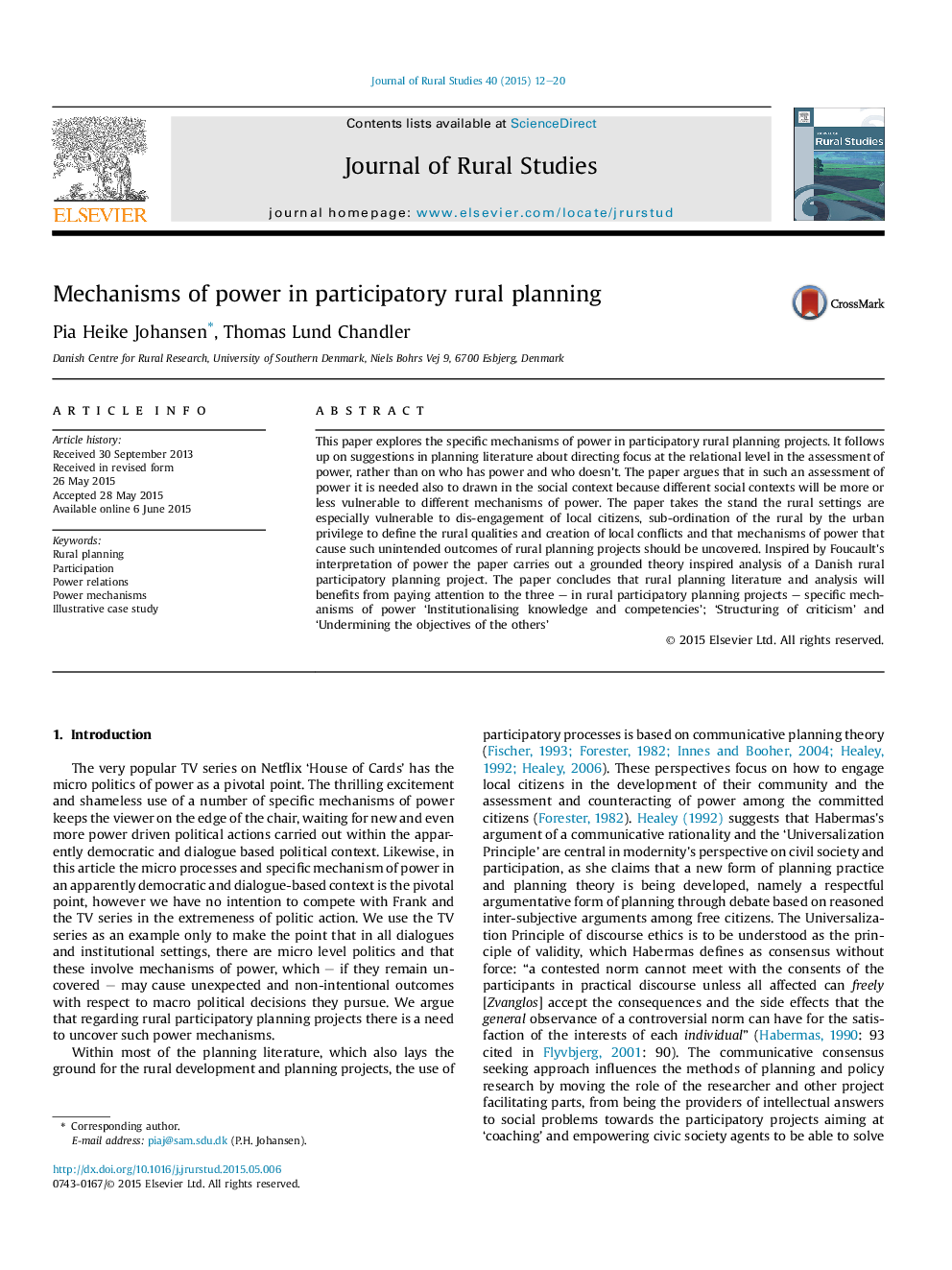| کد مقاله | کد نشریه | سال انتشار | مقاله انگلیسی | نسخه تمام متن |
|---|---|---|---|---|
| 92445 | 159966 | 2015 | 9 صفحه PDF | دانلود رایگان |
• We contribute to rural planning literature with a micro politic perspective to participatory processes.
• We illustrate central points from the Foucault/Habermas debate empirically.
• We illustrate how different actors in a participatory rural planning projects make use of mechanisms of power.
• We suggest three mechanisms of power to be aware of in rural participatory projects.
This paper explores the specific mechanisms of power in participatory rural planning projects. It follows up on suggestions in planning literature about directing focus at the relational level in the assessment of power, rather than on who has power and who doesn't. The paper argues that in such an assessment of power it is needed also to drawn in the social context because different social contexts will be more or less vulnerable to different mechanisms of power. The paper takes the stand the rural settings are especially vulnerable to dis-engagement of local citizens, sub-ordination of the rural by the urban privilege to define the rural qualities and creation of local conflicts and that mechanisms of power that cause such unintended outcomes of rural planning projects should be uncovered. Inspired by Foucault's interpretation of power the paper carries out a grounded theory inspired analysis of a Danish rural participatory planning project. The paper concludes that rural planning literature and analysis will benefits from paying attention to the three – in rural participatory planning projects – specific mechanisms of power ‘Institutionalising knowledge and competencies’; ‘Structuring of criticism’ and ‘Undermining the objectives of the others’
Journal: Journal of Rural Studies - Volume 40, August 2015, Pages 12–20
